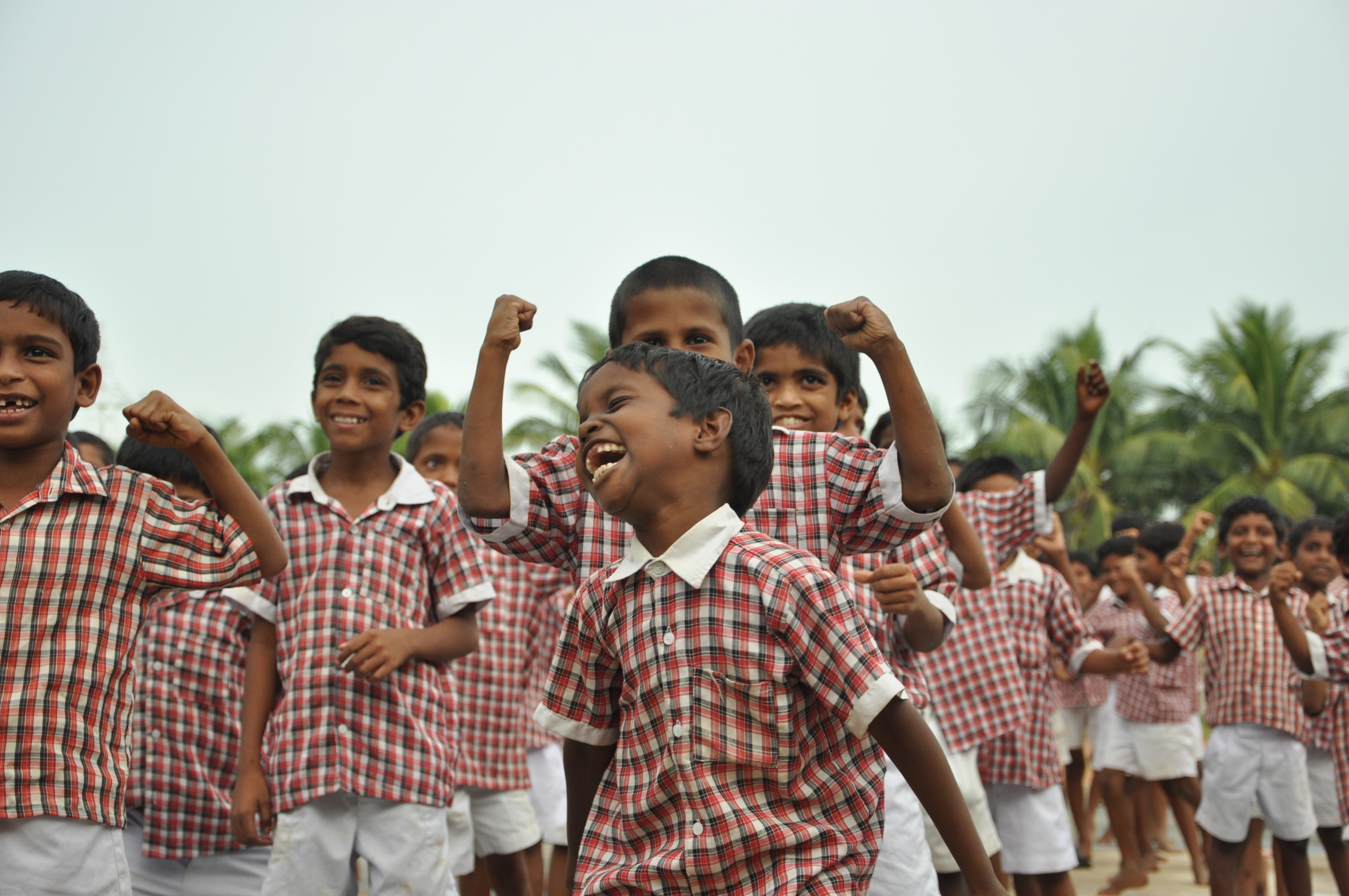Dr Pauline Dixon from E.G West Centre, Newcastle’s School of Education, Communication and Language Sciences, draws our attention to international aid in the latest Idea for an Incoming Government hosted by the Social Renewal blog. In particular, she argues that the evidence supports financial contribution towards low-cost private schools in slums of the developing world.
What is the problem?
A large body of research published since 2000 has documented the significant and growing contributions of low-cost private schools in slums and villages of developing countries around the world. In India, Pakistan and Africa these schools have been shown to have better facilities, teacher attendance and activity as well as higher student achievements than government schools. And this is all achieved at a fraction of the teacher costs. Low cost private schools are already contributing to quality “education for all”.
However, even though many poor people are able to access low cost private schools costing £4-£5 per month, others are so poor that they are unable to afford the fees. If international aid were to be given at the grassroots level in the form of targeted vouchers and/or conditional or unconditional cash transfers, then this would assist the poorest to access a better education for their children.
International aid regarding schooling in the developing world needs to focus on quality “Education for All” and not just getting children into ‘schools’ that may be ineffective. Aid agencies should start to consider assisting the poorest parents in gaining access to the better quality and more effective and efficient low cost private schools that already exist in city slums as well as rural areas in Africa and India. Parents voting with their feet away from state education that is failing their children have set an agenda that international aid agencies need to appreciate and acknowledge.
The solution
An education voucher may be a coupon or a cheque that a government or philanthropist provides to parents for them to spend with an education provider of their choice. They may be used as part or whole payment for schooling, which could be in the state or private sector – but typically an approved school participating in the voucher programme. It is possible therefore, through the use of aid vouchers, for funds to reach the poorest at the grassroots level, minimising waste, corruption and theft whilst focusing on efficiency and effectiveness. It is now time that such alternative means of allocating international aid be given a true hearing.
Some, such as Joseph Hanlon et al., also suggest that just giving money to the poor is the best solution to ending poverty. Hanlon et al provide evidence from cash transfer programmes around the world, setting out a case to show that cash transfers given direct to the poor are efficient because recipients use the money in a way that best suits their needs. Cash transfers can be unconditional (no conditions attached for gaining the cash) or conditional (the recipients are required to do something to get the cash transfer). Mothers usually receive the transfer and, in addition, some programmes give money to the student. They can have a broad target or a narrow target providing a very small or large proportion of household income. Typically, conditional cash transfers (CCTs) request those in receipt of the cash to make specific investments in their children’s education and health. The two largest CCTs are in Brazil and Mexico – Bolsa Família and Oportunidades respectively. Chile and Turkey’s CCT programmes focus on the extreme poor and socially excluded, and in Bangladesh and Cambodia CCTs aim at reducing gender disparities in education.
The conditions of the CCTs generally require parents to make investments in their children’s human capital in the form of healthcare and education. The education conditions have typically until now focused on government school enrolment. That is, the child’s school attendance requirements are set at between 80 and 85%. Focus could now be on the low cost private schools’ sector, which would be part of the ‘condition’ of the transfer. The child would need to access a school of ‘quality’ that would increase their attainment and ability, and not merely prove ‘attendance’.
The evidence
In India, randomised control trials have illustrated the advantages of directing funds to the poor through an alternative provider and management sector. The ARK (Absolute Return for Kids) Delhi voucher programme funded by a London based charity has been shown to provide access to the poorest as well as to benefit girls from the poorest families in society. Some of the poorest children in the slums of Delhi started school in 2011 using ARK vouchers. They are attending schools of their own choice. At the end of year one of the voucher scheme, children in both control and treatment groups were tested again in the standardised tests. The results show that there is a positive and statistically significant impact of the voucher programme on math achievement. The voucher adds up to about £100 per year and includes the payment for fees, books, uniform and meals.
The Punjab Education Foundation (PEF) has been running the Education Voucher Scheme (EVS) in Lahore since 2006. In 2011 a total of 40,000 vouchers were offered in 17 districts including Lahore. Over half of the voucher recipients are girls. The aim of the scheme is to allow the poorest of the poor to have equal access to quality education. The LEAPS project found that children in low cost private schools in Pakistan were 1.5-2.5 years ahead of children in government schools.
In Columbia, the Programa de Ampliacion de Cobertura de la Educacion Secundaria (PACES), was set up 20 years ago and provided vouchers to help 125,000 children from low-income families. Researchers tracked the children over the years. They also tracked a similar number of families who had applied for, but were not allocated vouchers due to limited numbers. The results show:
- Parents who were given vouchers opted to send their children to private schools and not keep them in the state system
- The children stayed on until 8th grade (about 13 years old), were less likely to take paid work during school time (therefore concentrated on their studies) and they scored higher in achievement tests than their peers attending government schools.
- The number of youngsters graduating from high school rose by five to seven per cent and they were more likely to try for university.
Looking at the evidence regarding cash transfers, this shows that they are not only affordable for donors and governments, but provide immediate hardship and poverty reduction for those in receipt of the transfer. They facilitate economic and social development, initiating the potential to reduce long-term poverty. Providing those at the grass roots with a monetary payment, which is regular, assured, practical to administer, fair and politically ‘acceptable’, allows the poor to be in control and in charge of their own development.
References:
- Dixon P. International Aid and Private Schools for the Poor: Smiles, Miracles and Markets. Cheltenham, Gloucester: Edward Elgar, 2013.
- Dixon P, Marshall P. International Aid and Educating the Poorest. London, UK: Centre Forum, 2011.
- Hanlon, J, Barrientos, A., and Hulme, D, Just Give Money to the Poor: The Development Revolution from the Global South, Virginia: Kumarian Press, 2010
- Tooley J., Dixon P., Shamsan Y., and Schagen I. The relative quality and cost-effectiveness of private and public schools for low-income families: a case study in a developing country. School Effectiveness and School Improvement, 21(2), 117-144, 2010
Watch Dr Pauline Dixon’s TED Talk on how private schools are serving the poorest in Asia and Africa and why, how and whom they are run and supported by: https://www.youtube.com/watch?v=gzv4nBoXoZc
Tweet @Social_Renewal using #Ideas4anIncomingGovt to join in the
conversation.




